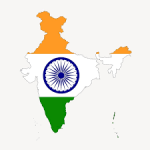Following India’s successful counterterrorism operations under Operation Sindoor, numerous media outlets and social media accounts linked to the Pakistani government have been identified as spreading misleading and fabricated information in an apparent effort to misrepresent the facts of the operation. On Wednesday, the Indian armed forces executed a series of precision strikes targeting nine high-value terrorist locations in Pakistan and Pakistan-occupied Kashmir (PoK) as a response to the April 22 terrorist attack in Pahalgam, which resulted in the deaths of 26 civilians. This operation represents a pivotal moment in India’s ongoing battle against cross-border terrorism. In the aftermath of the strikes, a surge of disinformation surfaced online, with Pakistani media organizations and associated accounts promoting false narratives and unverified claims across social media platforms, particularly on X. Independent analysts and India’s official fact-checking agencies promptly identified many of these claims as unfounded. One of the most widely circulated falsehoods suggested that Pakistan had attacked an Indian military base in Amritsar. The video purportedly supporting this claim, which depicted large flames illuminating the night sky, was quickly disproven. Fact-checkers traced the footage back to a wildfire that occurred in Valparaiso, Chile, in 2024, which had no relation to any military activities in India or Pakistan.
The Fact Check division of the Press Information Bureau swiftly responded to the spread of misinformation, declaring: ‘Pakistan Propaganda Alert! Accounts based in Pakistan are disseminating outdated videos that falsely claim strikes on a military base in Amritsar. The video currently circulating originates from a wildfire in 2024. It is crucial to refrain from sharing unverified information and to depend solely on official communications from the Government of India for accurate updates.’ In spite of these clarifications, numerous pro-Pakistan accounts, including those associated with the Inter-Services Public Relations (ISPR), persisted in promoting similar narratives. Many images and videos circulated by Pakistani sources were either digitally manipulated or taken from unrelated events, often dating back several years, and were repurposed to create a misleading narrative of retaliation and military strength. Observers have pointed out that even prominent political figures participated by sharing discredited content and making unfounded assertions of successful counterstrikes. Analysts have characterized this as a coordinated initiative by Pakistan’s information apparatus to alter public perception following India’s military operations. Experts monitoring the dissemination of disinformation have noted that the use of altered content, such as outdated war footage and repurposed disaster videos, is part of a long-standing strategy employed by Pakistan’s state-affiliated media to sustain a psychological narrative of equality and defiance against India, particularly in the wake of significant Indian military actions.










